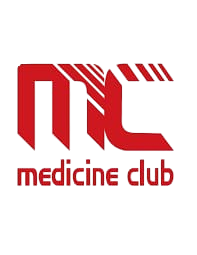- Home
- Medicine Talks
Medicine Talks
Good Medical Students Manage Tuitions and Academic Life Simultaneously
12 April 2024, Rahman K-81
Balancing tuition teaching and a full-time medical curriculum may seem overwhelming to many, but good medical students often rise to the challenge. In fact, those who successfully manage both develop a set of skills that benefit not just their academic life, but their future medical careers as well.
📚 Dual Responsibility: A Reality for Many
Medical students are often seen as some of the busiest individuals. Between lectures, clinical rotations, ward duties, and exam preparation, their schedules are already packed. Yet, some choose to teach tuitions, either for financial support, personal interest, or to strengthen their own understanding of subjects.
Rather than a distraction, teaching can become a powerful tool for reinforcement and skill-building.
🌟 Why Good Medical Students Can Manage Both
Excellent Time Management
Good students know how to schedule their day, setting aside time for studies, tuitions, rest, and even personal time.
They avoid wasting time and prioritize effectively.
Strong Academic Foundation
Those who teach often revisit the basics, which sharpens their own concepts.
“To teach is to learn twice” — explaining concepts to others enhances understanding.
Discipline and Consistency
Having a responsibility like tuition forces students to stick to a daily routine.
Discipline in one area often reflects in academics as well.
Better Communication Skills
Teaching improves the ability to explain, simplify, and interact — skills that are vital in clinical practice with patients.
Financial Independence
For some students, taking tuitions provides a source of income, easing the burden of fees, books, and living expenses.
⚖️ The Key is Balance
It’s important to understand that not every medical student may be able to handle both at all times. The key lies in knowing your own capacity. Good students don’t let tuitions interfere with their own academic performance. Instead, they:
Limit the number of students or hours they teach.
Increase or decrease tuition sessions based on upcoming exams.
Use weekends or evenings efficiently.
✅ Tips for Managing Both
Make a weekly plan with fixed study and teaching slots.
Avoid overcommitting. Quality is better than quantity.
Use teaching as revision. Teach subjects that align with your own syllabus.
Take care of your health. Good sleep, breaks, and some physical activity are essential.
🎓 Final Thoughts
Good medical students are not just book-smart — they’re life-smart. Managing tuitions and academic life together shows maturity, responsibility, and multitasking ability. These are the very qualities that make for an excellent future doctor.
In short, it’s not about doing everything, but about doing the right things with consistency and purpose.
How Long Should a Medical Student Sleep? 5 Hours or 7 Hours?
11 April 2024, Ahmed K-79
Medical students often face extreme academic pressure, long study hours, and clinical responsibilities. With such demanding schedules, the question arises: How much sleep is actually enough? Should a medical student sleep 5 hours or aim for 7 hours?
🔬 The Science Behind Sleep
Sleep plays a crucial role in memory consolidation, learning, and mental performance — all essential for medical students. According to multiple studies, the ideal sleep duration for young adults (18–25 years) is 7–9 hours per night. During sleep, especially in the deep and REM stages, the brain organizes and stores information learned throughout the day. This is vital for medical students who need to retain a vast amount of detailed and complex information.
⚖️ 5 Hours vs. 7 Hours: A Comparison
| Factor | 5 Hours Sleep | 7 Hours Sleep |
|---|---|---|
| Concentration | Reduced focus and higher mental fatigue | Sharp attention and sustained focus |
| Memory & Learning | Impaired memory consolidation | Enhanced long-term memory |
| Mood | Irritability, anxiety, and poor emotional control | Better mood and emotional resilience |
| Health | Increased risk of burnout, immune suppression, and chronic issues | Better immunity, lower stress levels |
| Academic Performance | Short-term gain, long-term loss | Steady and sustainable progress |
🩺 Realities of Medical Life
There may be periods (like during exams or emergency duties) when students sleep less than 7 hours. However, making 5 hours a regular habit is harmful in the long run. It may lead to burnout, decreased productivity, and even mental health issues.
Medical students often fall into the trap of sacrificing sleep to study more, but ironically, less sleep reduces their efficiency, leading to more mistakes and slower learning.
✅ What’s the Ideal Recommendation?
While every individual is different, 7 hours of quality sleep is the ideal minimum for most medical students. If you must cut down on sleep occasionally, it should be temporary and followed by recovery rest.
🧠 Pro Tip for Students
Use Pomodoro technique or active recall to study smart, not just hard.
Prioritize consistent sleep schedule, even during exams.
Power naps (15–30 minutes) can boost alertness during long study sessions.
In conclusion, while 5 hours may seem manageable in the short term, 7 hours of sleep is significantly better for mental clarity, memory, health, and academic success. Medical students are training to care for others — and it begins by taking care of themselves.
Would you like me to make a poster or infographic version of this as well?


